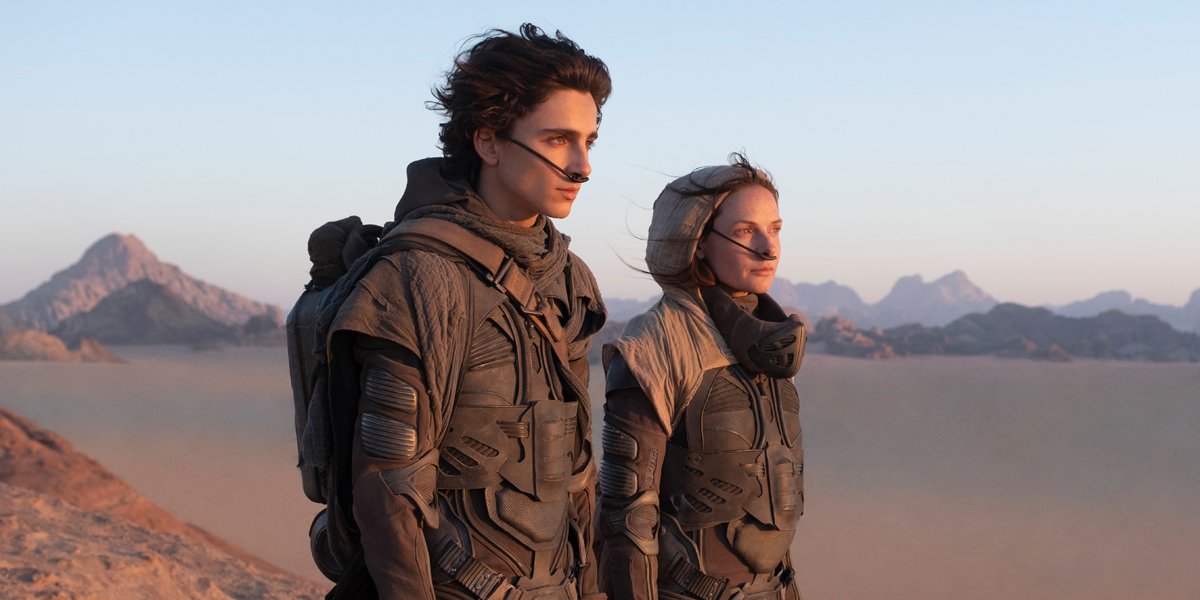Dune: Denis Villeneuve Responds To Criticisms That The Sci-Fi Epic Is A White Savior Story

First published in 1965, Frank Herbert’s Dune is a work that has been examined and deconstructed by bibliophiles and sci-fi nerds for decades, and while its popularity is unquestionable, it also has plenty of critics. In the case of the latter, some simply can’t get into the prose, but others take issue with perceived larger themes – a standout being that the accusation that the narrative is a version of the ugly white savior trope. This is a particular conversation that has returned to the pop culture forefront in recent months thanks to director Denis Villeneuve’s upcoming big screen adaptation, and it’s subject matter that the filmmaker himself has now publicly expressed thoughts about.
Denis Villeneuve has begun the long global press tour that will lead up to Dune’s release in mid-October, and it was this past week while participating in a roundtable with a small group of journalists (including myself) that he addressed the white savior criticisms of the original novel. Asked specifically about that take, Villeneuve agreed that it was a pertinent subject to discuss, but he also rebuffed the idea, and instead said that he reads the book as an argument against that hurtful cliché. He explained,
It's a very important question, and it's why I thought that Dune is when, the way I'm reading it, relevant. It's a critique of that. It's not a celebration of a savior. It's a criticism of the idea of a savior, of someone that will come and tell another population how to be, what to believe. It's not a condemnation, but a criticism. So that's the way I feel it's relevant, and that can be seen as contemporary. And that's what I would say about that. Frankly, it's the opposite.
Powered by RedCircle
For those unfamiliar with the concept, the white savior trope is a persistent narrative that we’ve seen in Hollywood films where minority groups see their circumstances elevated thanks to the arrival of a white person in their lives. It’s a storyline that we’ve seen repeatedly play out for decades on the big screen – from To Kill A Mockingbird, to Dangerous Minds, to The Help – and critics have judged it for the way in which it tends to soft pedal racial relations and propagandize colonization.
From an outside perspective, it’s not difficult to understand why this kind of criticism is levied at Dune: in the novel, the noble House Atreides – primarily represented by Paul Atreides (played by Timothee Chalamet in the movie) and his mother, Lady Jessica (Rebecca Ferguson) – arrive on the desert planet of Arrakis with the intention of creating an alliance with the long-exploited indigenous people, known as the Fremen. Without spoiling things for those who haven’t read the novel, there is ultimately a collaboration that is formed, but as the story plays out there are plot points that buck clichés, and the sequel books take that even further.
Denis Villeneuve’s expressed perspective here will make it particularly interesting to see how his version of Dune will play to those who have previously judged Frank Herbert’s book as an incarnation of the white savior trope. While those readers may have come away from the story on the page with that view, seeing how it is filtered through Villeneuve’s read and interpretation may very well wind up being enlightening, and it could ultimately deepen the larger conversation surrounding the work. That’s persistently one of the best things an adaptation can do, and hopefully we’ll see an example here.
After a longer-than-expected wait, Denis Villeneuve’s Dune is nearly here in its star-studded glory – featuring a cast that includes not only the aforementioned Timothee Chalamet and Rebecca Ferguson, but also Oscar Isaac, Josh Brolin, Stellan Skarsgård, Dave Bautista, Jason Momoa, Javier Bardem, and Zendaya. Prepare now for the film’s arrival in theaters everywhere on October 22, and feel free to start by reading my spoiler-free review:
CINEMABLEND NEWSLETTER
Your Daily Blend of Entertainment News

Eric Eisenberg is the Assistant Managing Editor at CinemaBlend. After graduating Boston University and earning a bachelor’s degree in journalism, he took a part-time job as a staff writer for CinemaBlend, and after six months was offered the opportunity to move to Los Angeles and take on a newly created West Coast Editor position. Over a decade later, he's continuing to advance his interests and expertise. In addition to conducting filmmaker interviews and contributing to the news and feature content of the site, Eric also oversees the Movie Reviews section, writes the the weekend box office report (published Sundays), and is the site's resident Stephen King expert. He has two King-related columns.

